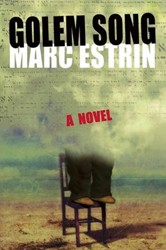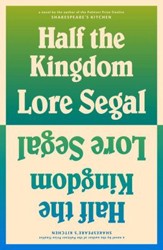From Aviva Rossner’s first arrival on campus that fall, Bruce Bennet-Jones’s memories are fixated on the new Jewish student matriculating into the class below his. Her early rejections of his desperate sexual overtures consume Bruce, and his fascination melds with jealousy as Aviva’s relationship with Seung Jung — the second son of Korean immigrants, a senior, swimmer, and dorm proctor from Bruce’s New Jersey hometown — flourishes under the scandalized and intrigued eyes of their schoolmates and faculty. As Seung and Aviva flout the dormitory rules and flaunt the intensity of their physical relationship, their lack of awareness subjects them to gossip (“Aviva didn’t know any better because she was a Jew — vulgar, totally unschooled in Yankee discretion. And she led Seung.”), disciplinary action, and forewarned tragedy; their conjointly developing sexuality — experienced “as psyche more than body, as vulnerability and power, exposure and flight, being anointed, saved, transfigured” — utterly absorbs them and, through his obsession, Bruce.
The Virgins reenters the northeast American boarding school world of A Separate Peace a generation later, enrolling the anonymous children of Gene Forrester and Brinker Hadley into their parents’ boyhood kingdoms gone co-educational and racially inclusive — as far as prestigious Protestant institutions have progressed by 1979. As the novel’s narrator, Bruce — now an adult with a respectable directorial career for the stage — recounts his senior year at Auburn Academy as the privileged legacy of his father (“the Judge”), older brother, and the generations before them. Like the narrator of the preceding generation’s boarding school tragedy, Bruce covets that which his classmate possesses out of Bruce’s own grasp, and the possibility of implicitness in Seung’s downfall haunts Bruce’s adulthood, muddled under the memories of his passion and fantasies surrounding Aviva as the entitled, baffled, pining teen voyeur.
We claimed to despise Auburn, its endless restrictions, its earnest propaganda of order. We disobeyed the rules, called Auburn a prison. But the truth was — and we knew it — Auburn was freer than any place we’d ever been. There were no parents here and little supervision. The eyes watching us, when they watched, did so without the jealousies and fears and hopes of our families. In this radical garden we could reinvent ourselves; we could see the adults we would become.… Somewhere God (the principal, the dean of students, our dorm heads) walked at a distance, allowing us our experiments, our discoveries. The worst thing that could happen to any of us, we knew, was to be brought home, shipped back to childhood.
Related content:
Nat Bernstein is the former Manager of Digital Content & Media, JBC Network Coordinator, and Contributing Editor at the Jewish Book Council and a graduate of Hampshire College.





